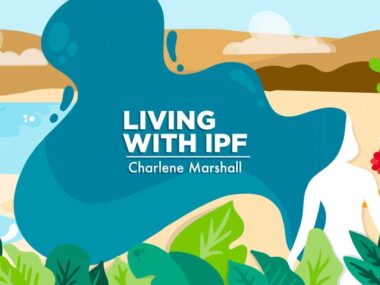Sharing my story helps raise awareness about pulmonary fibrosis
Learning about my disease has helped me tell others about it
Written by |

From the day I was diagnosed with idiopathic pulmonary fibrosis (IPF) in January 2017, I set out to learn everything I could about the disease. This included how to tell others about IPF, which is so named because its cause isn’t known.
When a transplant isn’t a viable option, IPF is terminal, but I knew I needed to soften my introduction of it. Instead, I described it as a chronic, progressive disease for which there is no cure. In the eight years since my diagnosis, raising awareness has been a hallmark of my journey.
I often ask someone if they are familiar with IPF. More often than not, their response is no, but sometimes it’s been yes. The person I’m talking to may have lost someone close to them to IPF. When I do hear a yes, I ask them about their experience with the disease. I want to hear their story or the story of someone close to them.
Listening to other people’s stories allows them to raise awareness. When someone tells me they haven’t heard of IPF, it’s an opportunity for me to raise awareness.
Repeating my story
People are often surprised that the cause of my pulmonary fibrosis is unknown. I’ve learned that the word “idiopathic” is new to many people. Not being able to explain how you got IPF can lead to a discussion about why research is so important to our community.
During the time I used supplemental oxygen, the cannula or the oxygen tanks served as icebreakers. Often, a curious child would “whisper” to an adult about the “straw” in my nose. I would look to the adult to make sure it was OK to answer and then explain that the device provided me with oxygen.
As my journey progressed, I was fortunate to be considered for a transplant. In July 2021, I had a bilateral lung transplant. Not everyone is eligible, and in some cases, a person may elect not to pursue one. That decision is very personal. Over the years, I’ve met patients who’ve elected palliative care or hospice.
A lung transplant isn’t a cure. It’s a non-drug treatment. Because my pulmonary fibrosis was idiopathic, no one can say whether it’s gone. The lung transplant allows me to breathe easier because the transplanted lungs are not scarred. I wasn’t diagnosed until I was 59 years old, making it highly unlikely I will be diagnosed with IPF a second time.
My transplant, as with most people who receive a solid organ transplant, comes with a lifetime of medical surveillance. I traded IPF therapies for therapies to suppress my immune system and prevent my donor lungs from being rejected.
During a recent vacation, I freely shared about my journey with IPF and a lung transplant. People are curious and have questions, but I’m comfortable answering them.
Because the vacation was a river cruise, the ships are smaller, with only about 120 passengers. On two different occasions, I was approached by people who’d heard from someone on the cruise that I’d had a lung transplant. I thought it was a great example of how sharing my story resulted in someone sharing it outside the group, creating an awareness ripple effect.
What are you doing to raise awareness this Pulmonary Fibrosis Awareness Month? Sharing my story to increase awareness is how I can make every breath count.
Note: Pulmonary Fibrosis News is strictly a news and information website about the disease. It does not provide medical advice, diagnosis, or treatment. This content is not intended to be a substitute for professional medical advice, diagnosis, or treatment. Always seek the advice of your physician or other qualified health provider with any questions you may have regarding a medical condition. Never disregard professional medical advice or delay in seeking it because of something you have read on this website. The opinions expressed in this column are not those of Pulmonary Fibrosis News or its parent company, Bionews, and are intended to spark discussion about issues pertaining to pulmonary fibrosis.








Karen Carns
Great story Sam! Had not thought of Jim's transplant and IPF in that way but a perfect example of educating others!
See you Saturday in DC!
John Caputo
I have been sharing almost all of the PFF 30 Facts in 30 Days up to today on my Facebook page, often with comments on my experience related to the fact of the day.
I have freely discussed with family & closer friends that knew of my IPF diagnosis in March 2021 & bilateral lung transplant on March 8, 2025. I always shared info with people that were interested if saw my with oxygen or noticed my struggles. Since sharing on FB have had others indicate no knowledge of disease & thanked me for sharing.
Most people had never heard of the disease. My brother died from IPF in 2019. I am now considered Familial, even though the telomere test was normal (not short telomere). I visited with a Geneticist at Cleveland Clinic this week & will be getting a blood test to check into other possibilities.
Samuel Kirton
John,
I am glad you are following up with other tests. Please come back and let us know what you learn.
Sam...